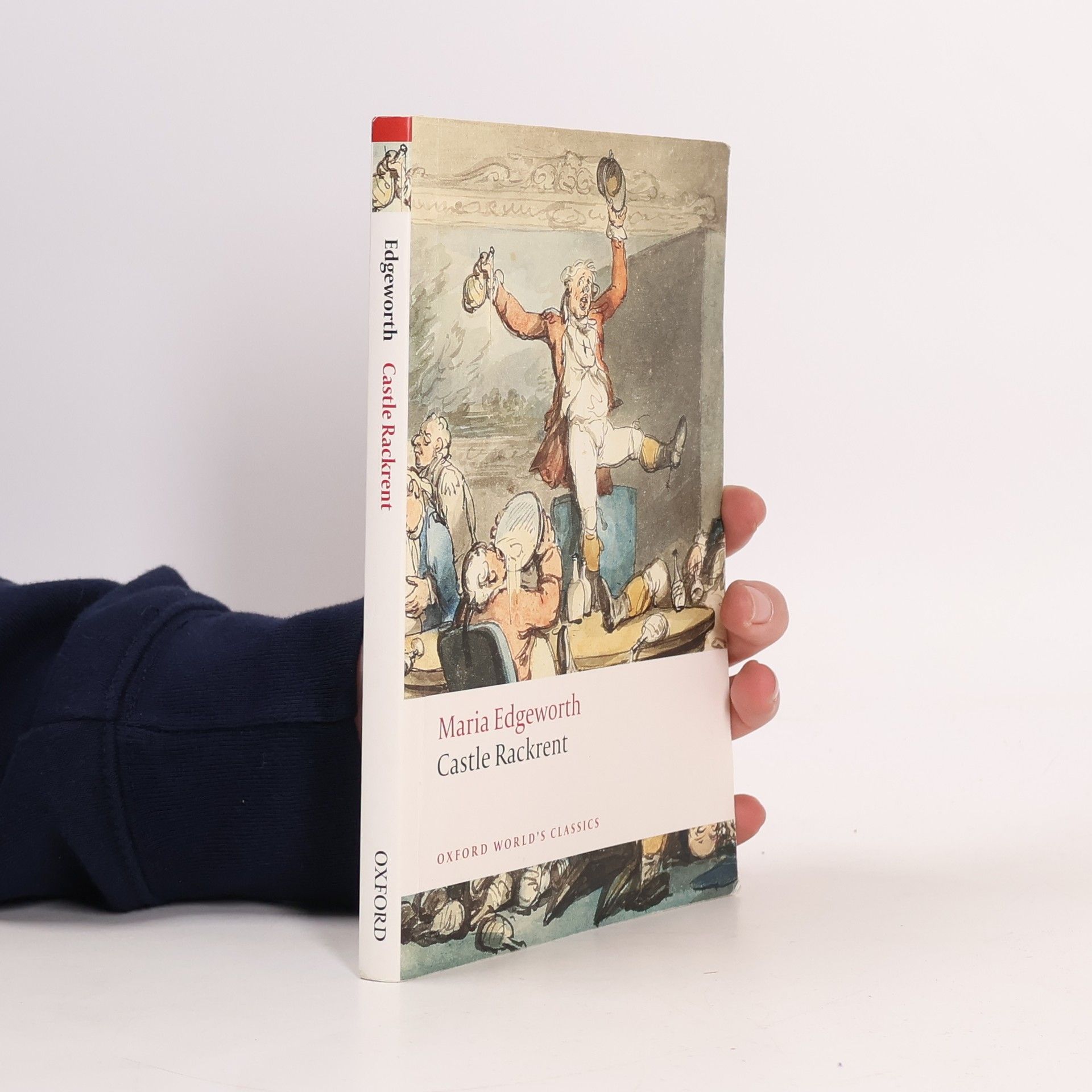Offers a selection of five short fictions by Hannah More, Amelia Opie, and Maria Edgeworth - the best-known writers of the moral tale - prefaced by a critical introduction to the genre and its place in the complex and fascinating debates surrounding the writing and reading of fiction in the Romantic period.
Maria Edgeworth Libros
Esta escritora angloirlandesa de la clase alta dedicó sus novelas a la justicia social y abogó por un trato humano a los inquilinos irlandeses y a los pobres por parte de sus terratenientes. Su obra explora las responsabilidades morales y la compasión inherentes a las relaciones sociales. Dedicó su escritura a retratar la importancia de la empatía y la equidad en el trato a los demás.

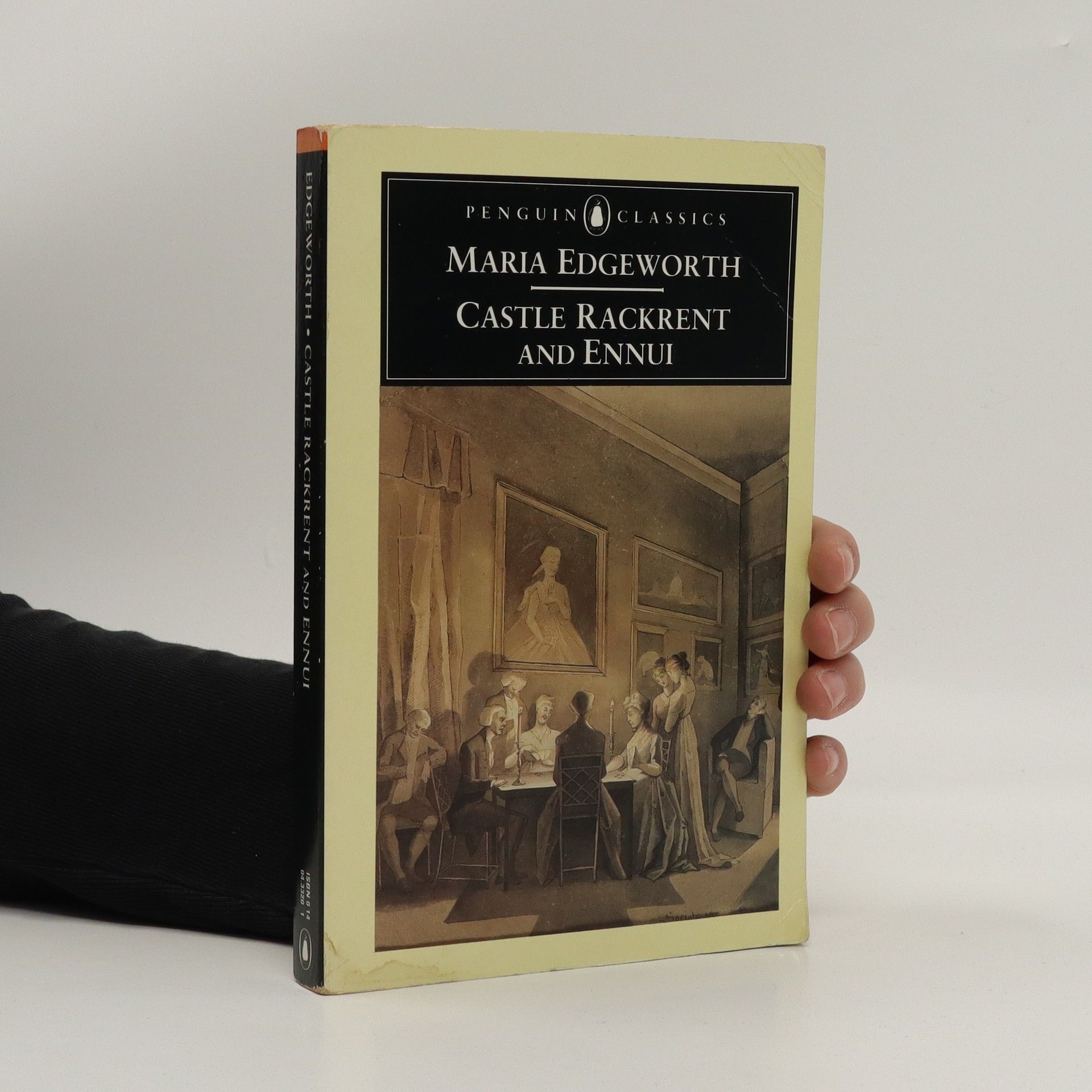
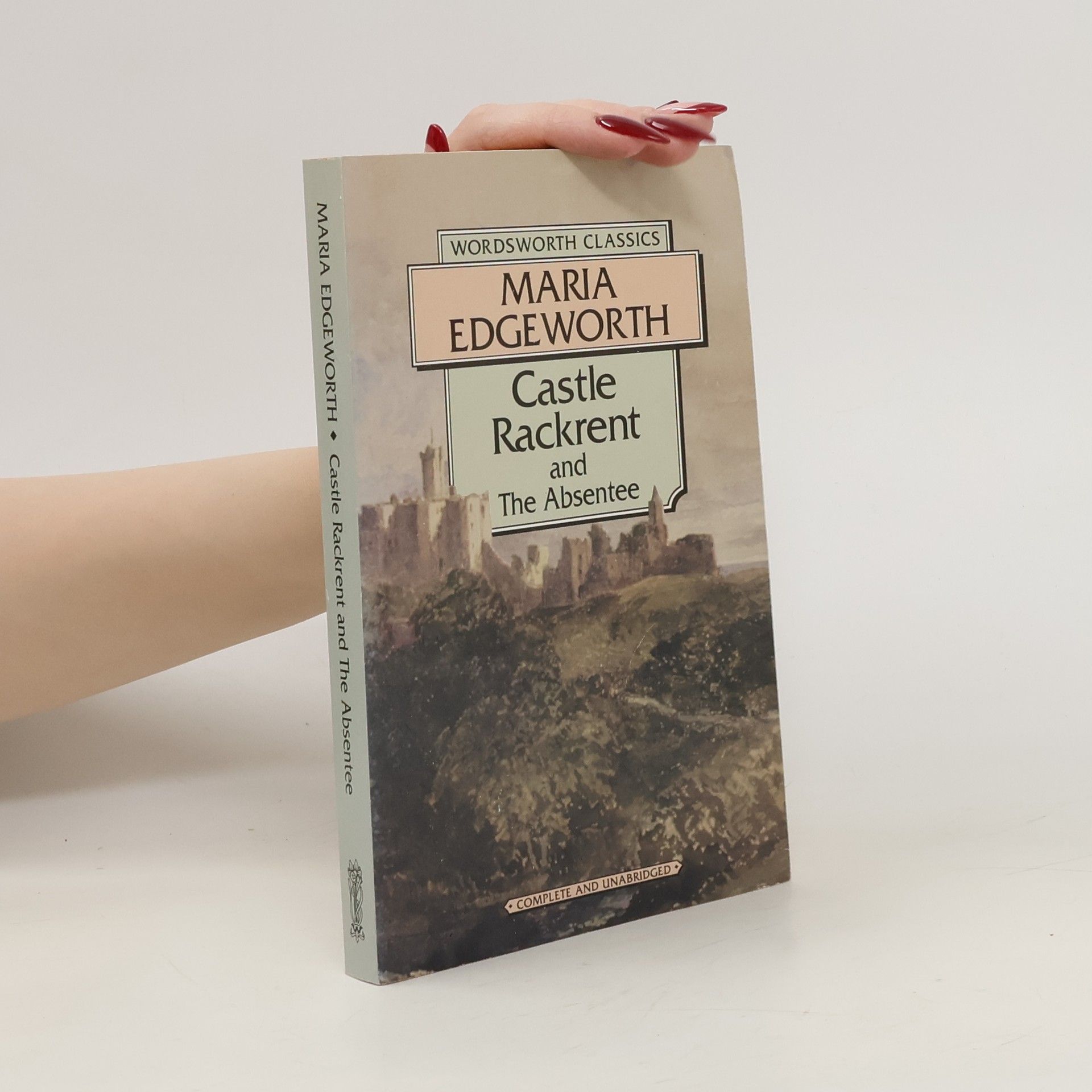
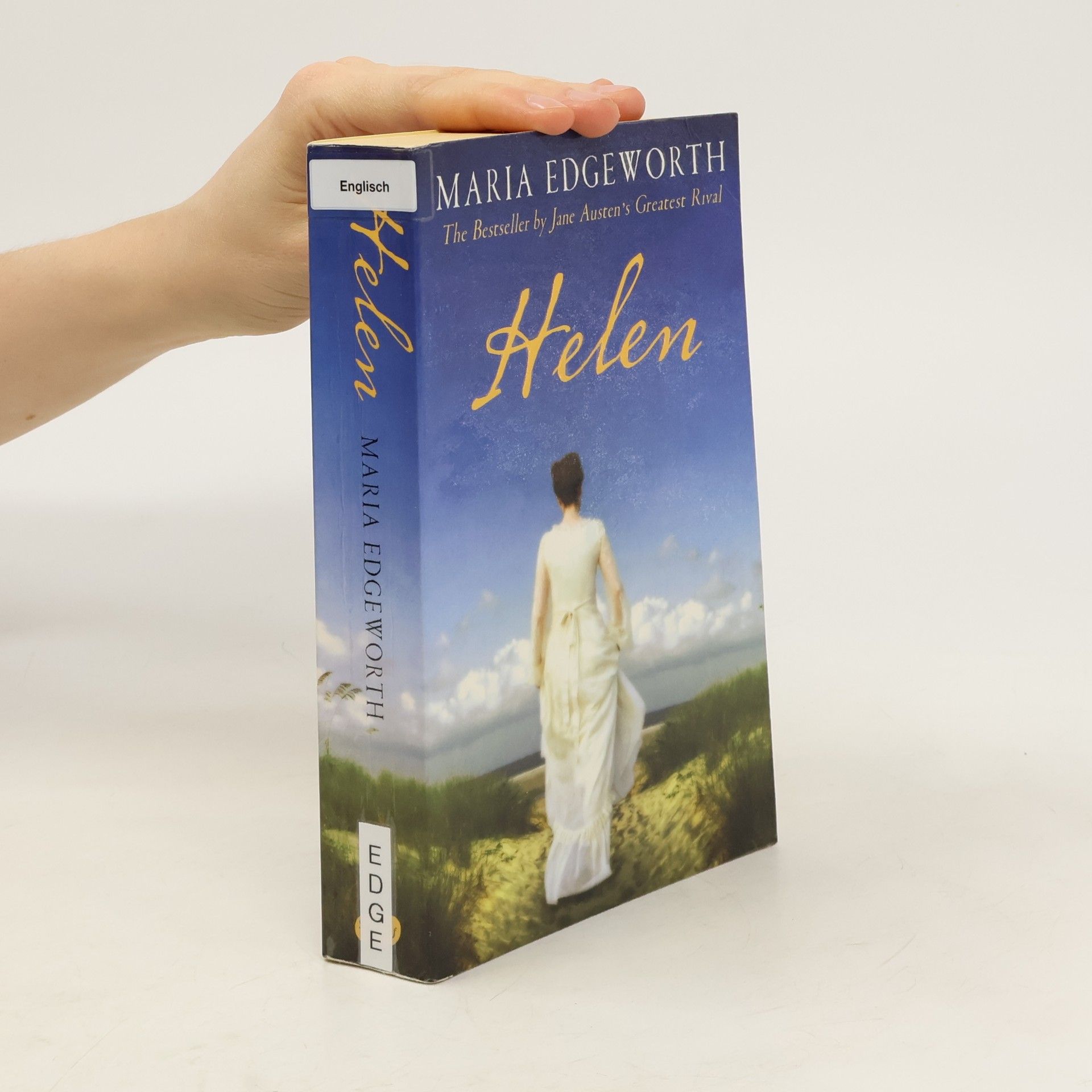
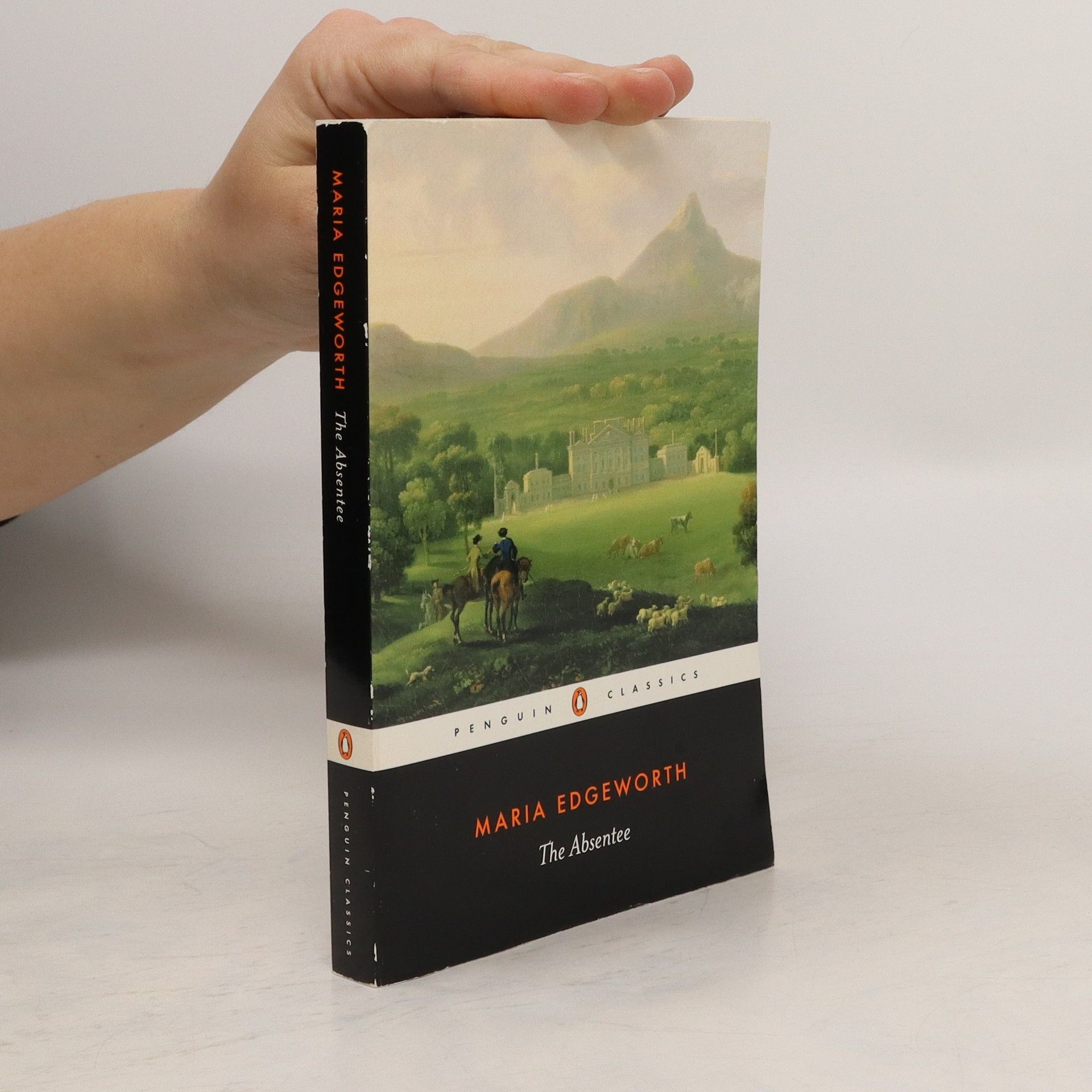


Belinda
- 500 páginas
- 18 horas de lectura
Maria Edgeworth won the admiration of her contemporary Jane Austen, as well as later writers such as Thackeray and Turgenev, and in Belinda (1801) she tackles issues of gender and race in a manner at once comic and thought-provoking. Braving the perils of the marriage market, Belinda learns to think for herself as the examples of her friends prove singularly unreliable. Edgeworth's varied cast includes the bewitching aristocrat, Lady Delacour, whose dreadful secret puts her in the power of her volatile servant; the dashing Creole gentleman, Mr Vincent who almost succeeds in winning Belinda's hand if not her heart; the eccentric Clarence Hervey, whose attempts to create an ideal wife backfire; and the outrageous Harriet Freke, whose antics as social outlaw land her in a mantrap. This lively comedy challenges the conventions of courtship, examines questions of female independence, and exposes the limits of domesticity. The text used in this edition (1802) also confronts the difficult and fascinating issues of racism and mixed marriage, which Edgeworth toned down in later editions.
The Absentee
- 320 páginas
- 12 horas de lectura
Lord and Lady Clonbrony are more concerned with fashionable London society than with their responsibilities to those who live and work on their Irish estates. Concerned by this negligence, their son goes incognito to Ireland to observe the situation. Can he find a solution that will bring prosperity and contentment to every level of society? schovat popis
Helen
- 511 páginas
- 18 horas de lectura
Written in 1834, the last and most psychologically powerful novel by Jane Austen's leading rival. Newly orphaned Helen Stanley is urged to share the home of her childhood friend Lady Cecilia. This charming socialite, however, is withholding secrets and soon Helen is drawn into a web of 'white lies' and evasions that threaten not only her hopes for marriage but her very place in society. A fascinating panorama of Britain's political and intellectual elite in the early 1800s and a gripping romantic drama. Helen was the inspiration for Elizabeth Gaskell's Wives and Daughters.
Castle Rackrent and the Absentee
- 362 páginas
- 13 horas de lectura
Originally published in 1913. Author: Henri Lichtenberger Language: English Keywords: History Many of the earliest books, particularly those dating back to the 1900s and before, are now extremely scarce and increasingly expensive. Obscure Press are republishing these classic works in affordable, high quality, modern editions, using the original text and artwork.Keywords: English Keywords 1900s Language English Artwork
Castle Rackrent and Ennui
- 368 páginas
- 13 horas de lectura
"I could not but admire my lady's spirit, and was proud to see Castle Rackrent again in all its glory"Thady Quirk is the ever-present steward to four generations of a dying dynasty in Castle Racrent, hilariously flattering and encouraging his hapless masters on their road to ruin. Ingeniously drawing on an actual chronicle of Maria Edgeworth's family experiences, the narrative subtly emerges as a devastating commentary on the Anglo Irish occupation of rural Ireland. This volume also includes Ennui, a natural sequel to Castle Rackrent with its family nurse of the Irish Rebellion of 1798, the lazy and gullible English earl, Lord Glenthorn, learns a shocking secret that will drive him and his nurse apartFor more than seventy years, Penguin has been the leading publisher of classic literature in the English-speaking world. With more than 1,700 titles, Penguin Classics represents a global bookshelf of the best works throughout history and across genres and disciplines. Readers trust the series to provide authoritative texts enhanced by introductions and notes by distinguished scholars and contemporary authors, as well as up-to-date translations by award-winning translators.
Castle Rackrent
- 127 páginas
- 5 horas de lectura
With her satire on Anglo-Irish landlords in Castle Rackrent (1800), Maria Edgeworth pioneered the regional novel and inspired Sir Walter Scott's Waverley (1814).
The book is a reproduction of a historical work, specifically designed in large print to enhance accessibility for readers with impaired vision. Published by Megali, a company dedicated to making historical texts more readable, it aims to preserve the original content while ensuring it is easily legible for all.
This book is a reproduction of a historical work, presented in large print to enhance accessibility for readers with impaired vision. Published by Megali, a house dedicated to making historical texts more readable, it aims to preserve important works while ensuring they are accessible to a wider audience.
